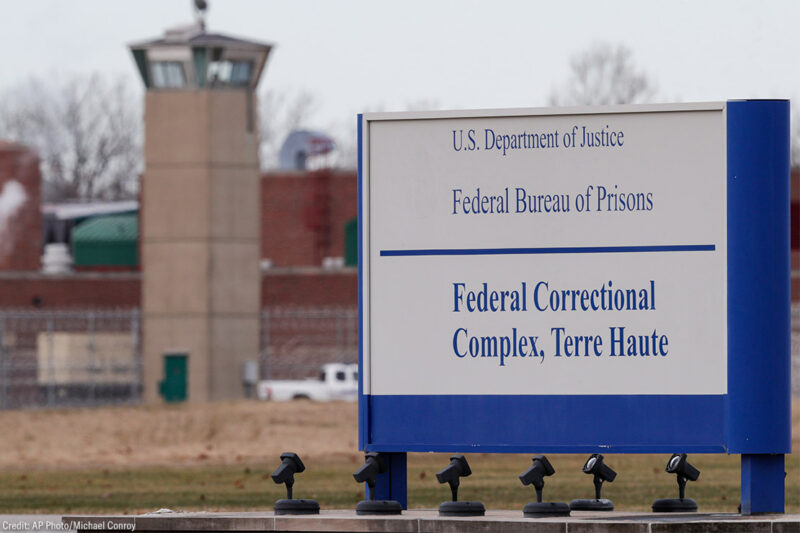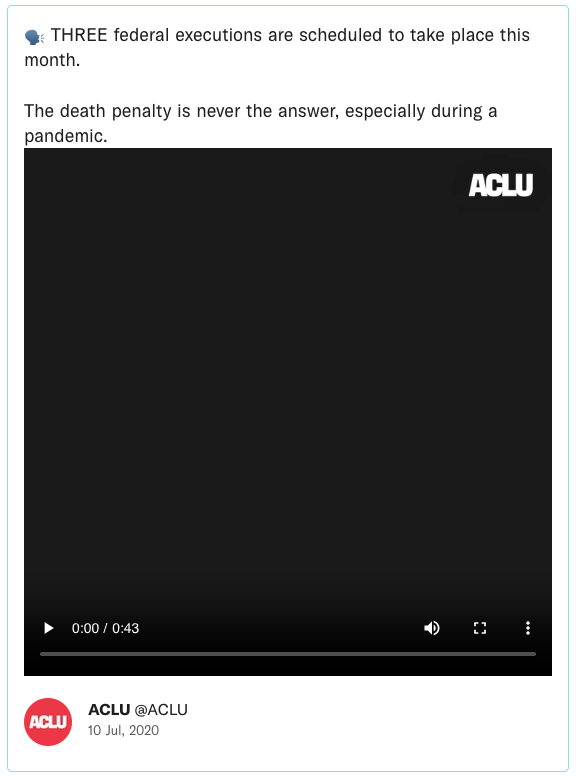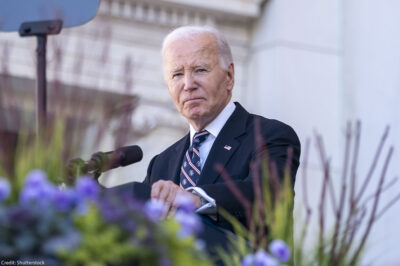Not Even a Global Pandemic Could Stop the Federal Government from Pursuing a String of Back-to-Back Executions This Summer


Tonight, the federal government plans to execute Lezmond Mitchell, a Navajo man, despite the objections of the Navajo Nation and the family members of the victim in the case, and despite a federal statute intended to prevent federal executions of indigenous people over the objections of Native American tribes.
Mr. Mitchell is the fourth person set for execution this summer alone. By carrying out this execution, Barr’s Justice Department will have executed more people this summer than in the last 57 years combined. Daniel Lee, Wesley Purkey, and Dustin Honken were executed within four days in July, the first federal executions since 2003, greenlit after the Justice Department proposed a new execution protocol last year. The DOJ has scheduled three more executions before October. This record-breaking string of back-to-back executions occurs during a global pandemic.
In all three executions carried out so far, the government sidestepped due process, public health recommendations, and legal precedent in its rush to kill. In flouting these important procedures, the government is treating human lives — and our laws — like they don’t matter. This should raise serious alarm.
The consequences of the government’s rush to execute will not only affect those on death row. Executions are potential super-spreader events during the COVID-19 pandemic, involving the travel and congregation of hundreds of people from across the country. That the government is choosing to resume federal executions now — at a time when much of our daily lives have ground to a halt — shows an alarming disregard for the lives of all involved, in addition to the inhumanity and the disturbing lawlessness of the capital punishment system.
COVID-19 swept through prisons, where it spreads rapidly due to crowded, unhygienic conditions. Many facilities, including FCC Terre Haute, where federal executions are carried out, have responded by suspending visitation, even by lawyers. But it seems these public health precautions do not apply when it comes to federal executions, which have been scheduled in rapid succession despite the high risk.
Participants at an execution include correctional officers, media representatives, spiritual advisors, and victims’ family members. Many may feel they have no choice.
For example, Purkey’s spiritual advisor Reverend Seigen Hartkemeyer, who is 68 and immunocompromised, felt religiously obligated to attend his execution despite the risks he faced.
“I feel substantial pressure to abandon my religious commitments to [Purkey],” he said in a court declaration in early July before Mr. Purkey’s execution. “I’m being asked to make an impossible decision — violate my religious beliefs or risk my health and life.”
Earlene Peterson, the grandmother and mother of two of Lee’s victims, raised similar concerns. Although Peterson, who is a Trump supporter, had long opposed Lee’s execution, she planned to attend if it was to go forward. She asked President Trump to stop or at least delay the execution until the family could attend safely, but her request was ignored.
These fears are not unfounded. At the time of the executions, the Terre-Haute prison was in the midst of its own outbreak. In fact, the Bureau of Prisons confirmed that a correctional officer at Terre-Haute tested positive for COVID-19 after participating in the preparation of the July executions.
Even without the threat of COVID-19, these unlawful executions should never have taken place. The federal government gave these men less legal process and protection than any state prisoner would ever receive.
For two of the men, the federal government carried out the executions on different days than those set by their death warrants under an unprecedented and illegal instant notice theory. Before any execution, federal law requires the government to issue a death warrant that delineates a specific date on which the execution must take place. Under its own rules, the government must then publicly disclose the execution date at least 20 days in advance.
Lee and Purkey, however, were executed hours after their death warrants expired. Instead of issuing a new execution date at least 20 days out, BOP officials wrote letters in the middle of the night simply declaring that the new execution date was that same day, in effect, that instant. No state or prior federal administration has ever attempted this kind of same day, instant notice.
In all three executions carried out so far, the government sidestepped due process, public health recommendations, and legal precedent in its rush to kill.
Procedures such as death warrants and the customary 20-day window of notice of execution dates were put in place for a reason: taking a human life is serious. The death warrant and customary notice period allow any outstanding legal issues to be addressed and resolved. In other words, these rules allow for due process. Lee and Purkey were not afforded this basic right.
The consequences could have meant the difference between life and death. For example, the Eighth Amendment prohibits the execution of those who are mentally unfit, such as Purkey, whose Alzheimer’s and schizophrenia were so severe that he no longer understood why he was being executed. At the time of his execution, a brain scan supporting these claims still awaited judicial review. Purkey was executed before any court had the opportunity to review this evidence, with his appeal pending.
This raw abuse of federal power to end human life comes at a time when most of the nation is moving away from capital punishment. A Gallup poll conducted last year found that 60 percent of Americans today prefer life imprisonment over the death penalty. Since the last federal execution in 2003, 10 states have formally abolished the death penalty, including Colorado, New Hampshire, and Washington state in recent years. Numerous other states have issued moratoriums.
Across the country, courts are issuing fewer death sentences and executions are rapidly decreasing. These steps toward progress are more aligned with the will of the people than that of the Justice Department. Even supporters of capital punishment should be ashamed of how the government ran roughshod over the Constitution and decency to carry out these executions.
The death penalty is a broken system from start to finish, global pandemic aside. We’ve long known that death sentences have less to do with the severity of the crime than with race, access to quality counsel, and the state or even county in which the crimes were committed. Further, not everybody who is sentenced to death is guilty. Over the last 44 years, 170 people sentenced to death have been exonerated. But the legal system doesn’t always realize its mistake in time. Troy Davis and Cameron Todd Willingham are among those executed despite their almost certain innocence.
The death penalty dehumanizes all of us, and renders the racism and errors of the criminal legal system permanent. The federal government’s eagerness to rush through this very serious legal matter is grotesque — as is its willingness to expose hundreds of individuals to a serious and potentially deadly illness in the process. There’s never been a better time for America to end this failed experiment.





